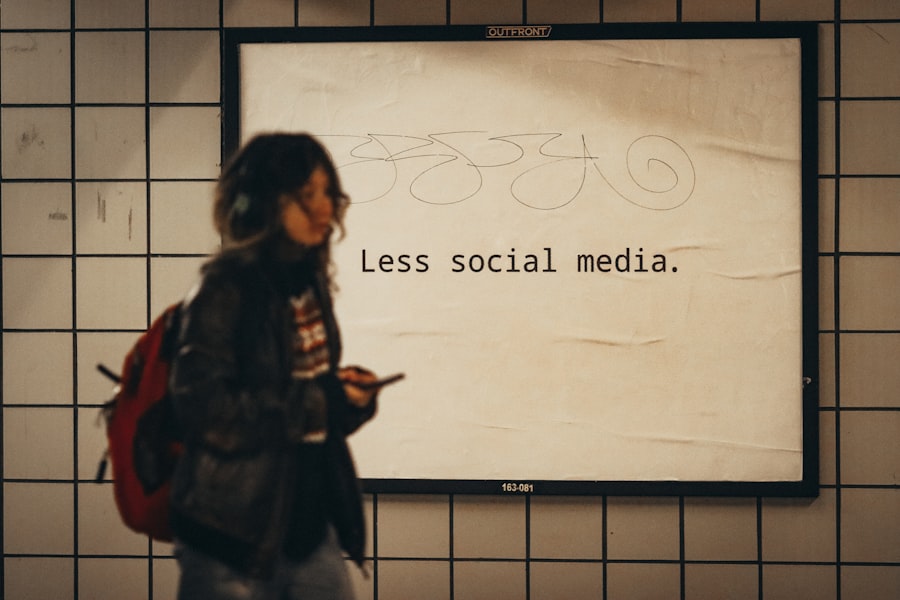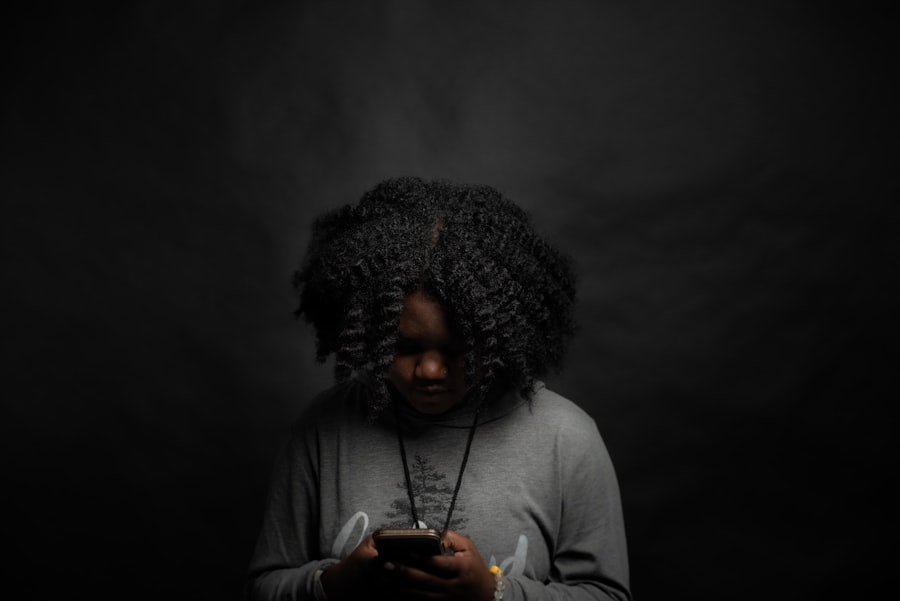In today’s digital age, social media has become an integral part of your daily life. Platforms like Facebook, Instagram, Twitter, and TikTok allow you to connect with friends, share experiences, and express yourself in ways that were unimaginable just a couple of decades ago. However, while these platforms offer numerous benefits, they also come with a darker side that can significantly impact your mental health.
The relationship between social media and depression is complex and multifaceted, often leading to feelings of inadequacy, anxiety, and isolation. As you scroll through your feed, you may find yourself bombarded with curated images and posts that portray an idealized version of life. This constant exposure can create unrealistic expectations and contribute to a growing sense of dissatisfaction with your own reality.
Understanding the nuances of how social media affects mental health is crucial for navigating this digital landscape in a way that promotes well-being rather than detracts from it.
Key Takeaways
- Social media use can have a significant impact on mental health, including depression.
- Comparison on social media can lead to feelings of inadequacy and low self-esteem.
- Cyberbullying on social media can have serious effects on mental health, including depression.
- Excessive use of social media can lead to addiction and exacerbate feelings of depression.
- Fear of missing out (FOMO) on social media can negatively impact mental health.
The Impact of Social Media on Mental Health
The impact of social media on mental health is profound and often troubling. Research has shown that excessive use of these platforms can lead to increased feelings of anxiety and depression. When you spend hours scrolling through posts, you may inadvertently expose yourself to negative content or distressing news, which can take a toll on your emotional well-being.
The constant influx of information can be overwhelming, leading to feelings of stress and anxiety as you try to keep up with the latest trends and updates. Moreover, the addictive nature of social media can create a cycle of dependency that further exacerbates mental health issues. You might find yourself reaching for your phone during moments of boredom or stress, seeking validation through likes and comments.
This behavior can lead to a distorted sense of self-worth, where your mood becomes tied to the number of interactions you receive online. As you become more engrossed in the digital world, it can be easy to neglect real-life relationships and activities that contribute positively to your mental health.
The Role of Comparison on Social Media

One of the most insidious aspects of social media is the tendency to compare yourself to others. As you scroll through carefully curated feeds filled with seemingly perfect lives, it’s natural to start measuring your own experiences against those you see online. This comparison can lead to feelings of inadequacy and low self-esteem, as you may feel that you don’t measure up to the standards set by influencers or peers.
The pressure to present a flawless image can be overwhelming, causing you to focus on your perceived shortcomings rather than celebrating your unique qualities. Additionally, this culture of comparison can create a vicious cycle where you feel compelled to post only the highlights of your life, further perpetuating the illusion that everyone else is living a perfect existence. You may find yourself editing photos or crafting captions that project an idealized version of reality, which can lead to disconnection from your true self.
Recognizing this pattern is essential for breaking free from the negative effects of comparison and fostering a healthier relationship with social media.
Cyberbullying and its Effect on Mental Health
| Metrics | Data |
|---|---|
| Percentage of adolescents affected by cyberbullying | 59% |
| Impact on mental health | Increased risk of depression and anxiety |
| Percentage of cyberbullying victims who experience suicidal thoughts | 34% |
| Effect on academic performance | Decreased grades and attendance |
Cyberbullying is another significant concern in the realm of social media, with devastating effects on mental health. Unlike traditional bullying, which often occurs in person, cyberbullying can happen at any time and in any place, making it particularly insidious. If you have ever experienced harassment or negative comments online, you know how deeply it can affect your self-esteem and overall mental well-being.
The anonymity provided by social media can embolden individuals to say hurtful things they might not express face-to-face, leading to a toxic environment that can leave lasting scars. The emotional toll of cyberbullying can manifest in various ways, including increased anxiety, depression, and even suicidal thoughts. You may feel trapped in a cycle of negativity, where the online harassment overshadows any positive interactions you have.
It’s crucial to recognize the signs of cyberbullying and seek support if you find yourself in such a situation. Building resilience against online negativity is essential for maintaining your mental health in an increasingly digital world.
The Connection Between Social Media Use and Low Self-Esteem
Your self-esteem is intricately linked to how you engage with social media. When you constantly compare yourself to others or seek validation through likes and comments, it can create a fragile sense of self-worth that fluctuates based on online interactions. If you find that your mood dips when you don’t receive the expected amount of engagement on your posts, it’s a clear indication that social media is influencing your self-esteem in unhealthy ways.
Moreover, the pressure to conform to societal standards portrayed on social media can lead to feelings of inadequacy.
This pursuit of external validation can detract from your ability to appreciate your unique qualities and strengths.
Cultivating self-acceptance and focusing on intrinsic values rather than external approval is vital for fostering a healthier self-image.
Social Media Addiction and its Impact on Depression

Social media addiction is a growing concern that can significantly impact your mental health. If you find yourself compulsively checking notifications or feeling anxious when you’re unable to access your accounts, it may be time to evaluate your relationship with these platforms. The dopamine rush associated with receiving likes or comments can create a cycle of dependency that mirrors other forms of addiction.
This constant need for validation can lead to increased feelings of loneliness and depression when the online interactions fail to fulfill your emotional needs. The time spent on social media often comes at the expense of real-life connections and activities that promote well-being. You might notice that you’re spending less time engaging in hobbies or nurturing relationships outside the digital realm.
This disconnection can exacerbate feelings of isolation and contribute to depressive symptoms. Recognizing the signs of social media addiction is crucial for reclaiming control over your mental health and finding balance in your life.
The Influence of FOMO (Fear of Missing Out) on Mental Health
The phenomenon known as FOMO (Fear of Missing Out) is prevalent in the age of social media, where you are constantly exposed to images and stories showcasing events and experiences that others are enjoying without you. This fear can lead to feelings of anxiety and inadequacy as you worry about not being included in social gatherings or exciting activities. The pressure to stay connected and engaged can create a sense of urgency that detracts from your ability to enjoy the present moment.
FOMO can also lead to impulsive decision-making as you feel compelled to participate in events or activities simply to avoid feeling left out. This behavior can result in overcommitment and burnout, further impacting your mental health. Learning to manage FOMO involves recognizing its influence on your emotions and finding ways to cultivate contentment with your own experiences rather than constantly comparing them to others.
How Social Media Can Exacerbate Feelings of Isolation and Loneliness
While social media is designed to connect people, it can paradoxically lead to feelings of isolation and loneliness. You may find yourself surrounded by virtual friends yet still feel disconnected from meaningful relationships. The superficial nature of online interactions often lacks the depth and intimacy found in face-to-face connections, leaving you feeling unfulfilled despite having numerous online acquaintances.
Moreover, when you engage primarily through screens, it can be easy to overlook the importance of genuine human connection. You might prioritize online interactions over spending quality time with loved ones or engaging in activities that foster real-world relationships. This disconnection can contribute to feelings of loneliness, making it essential to strike a balance between online engagement and nurturing meaningful connections in your life.
The Relationship Between Social Media Use and Sleep Disturbances
Your sleep patterns are also affected by social media use, with many individuals reporting disturbances linked to their online habits. If you find yourself scrolling through feeds late into the night or checking notifications first thing in the morning, it’s likely impacting your sleep quality. The blue light emitted by screens can interfere with melatonin production, making it harder for you to fall asleep and stay asleep.
Poor sleep quality can exacerbate symptoms of depression and anxiety, creating a vicious cycle where lack of rest leads to increased reliance on social media for comfort or distraction. Prioritizing healthy sleep habits is crucial for maintaining mental well-being in an age where digital distractions are ever-present. Establishing boundaries around screen time before bed can help improve sleep quality and overall mental health.
Strategies for Using Social Media in a Healthier Way
To foster a healthier relationship with social media, consider implementing strategies that promote well-being rather than detract from it. Start by curating your feed; unfollow accounts that trigger negative emotions or comparisons while following those that inspire positivity and authenticity. Surrounding yourself with uplifting content can significantly impact your mood and outlook.
Additionally, set boundaries around your social media use by designating specific times for checking notifications or engaging with platforms. This practice can help reduce feelings of anxiety associated with constant connectivity while allowing you to focus on real-life interactions and activities that bring joy. Engaging in digital detoxes—periods where you intentionally disconnect from social media—can also provide valuable space for reflection and rejuvenation.
Conclusion and Recommendations for Managing Social Media and Depression
In conclusion, while social media offers numerous benefits for connection and expression, it also poses significant risks for mental health, particularly concerning depression. By understanding the various ways social media impacts your emotional well-being—through comparison, cyberbullying, addiction, FOMO, isolation, and sleep disturbances—you can take proactive steps toward managing its influence on your life. To navigate this digital landscape more healthily, prioritize self-awareness and intentionality in your social media use.
Curate your online experience by following positive influences, setting boundaries around usage, and engaging in real-life connections that foster genuine relationships. Remember that it’s okay to take breaks from social media when needed; prioritizing your mental health should always come first. By implementing these strategies, you can cultivate a more balanced relationship with social media that supports rather than undermines your mental well-being.
A growing body of research has been exploring the intricate link between social media usage and depression, highlighting both the potential risks and benefits of these platforms. An insightful article on this topic can be found on Unplugged Psych, which delves into the psychological impacts of social media on mental health. The article discusses various studies that have shown a correlation between excessive social media use and increased levels of depression, while also considering the role of social media in providing support and community for some users. For a deeper understanding of these dynamics, you can read more in the article available at Unplugged Psych.
LEARN WHY Your Brain Isn’t Addicted to Likes; the Algorithm Gaslights You Daily, Hard.
FAQs
What is the link between social media and depression?
Research has shown that there is a correlation between heavy use of social media and an increased risk of depression. This is due to factors such as cyberbullying, social comparison, and feelings of inadequacy stemming from unrealistic portrayals of life on social media.
How does social media contribute to depression?
Social media can contribute to depression by fostering feelings of loneliness, inadequacy, and anxiety. The constant exposure to curated and often unrealistic portrayals of others’ lives can lead to negative self-comparisons and a sense of social isolation.
What are the potential effects of social media on mental health?
Excessive use of social media has been linked to a range of mental health issues, including depression, anxiety, low self-esteem, and poor body image. It can also lead to a decrease in real-life social interactions and a lack of meaningful connections.
Are there any benefits of using social media for mental health?
While excessive use of social media can have negative effects on mental health, it can also provide a platform for social support, connection, and access to mental health resources. It’s important to use social media mindfully and in moderation to reap these potential benefits.
What can individuals do to mitigate the negative effects of social media on mental health?
To mitigate the negative effects of social media on mental health, individuals can limit their time spent on social platforms, curate their online social circles, and seek out positive and supportive communities. It’s also important to be mindful of the content consumed and to prioritize real-life social interactions.




